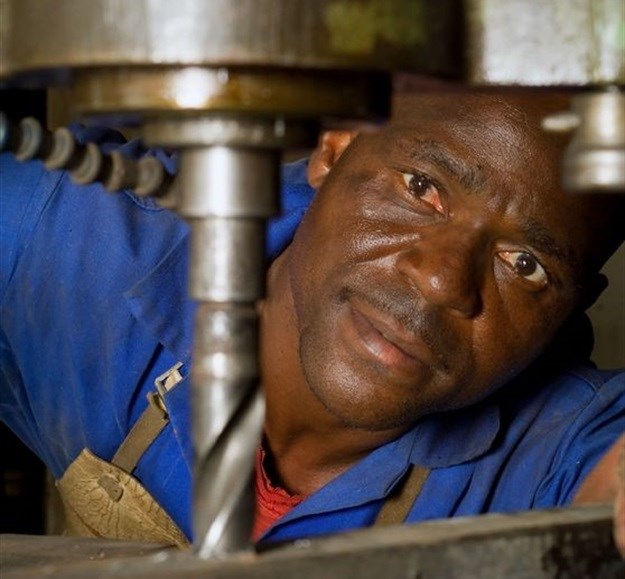






A letter of intent was issued by Japan on Tuesday, 22 September, during the third Japan seminar held in Johannesburg.
The seminar was organised jointly by the Japan External Trade Organisation (JETRO), the Japanese Embassy in South Africa and the Japanese Chamber of Commerce and Industry in South Africa. It brought together South Africans, the Japanese business communities and public entities with the view to promote trade between the two sides.
“Please accept this offer from us to help train young South African artisans,” said Japan’s Ambassador Shigeyuki Hiroki, adding that Japan was responding to South Africa’s needs for the development of specialised skills.
South Africa's National Development Plan (NDP) - which aims to ensure that all South Africans attain a decent standard of living through the elimination of poverty and reduction of inequality by 2030 - states that the country should produce more than 30 000 qualified artisans a year to meet its skilled labour demands.
According to the 2014 Development Indicators Report, artisans completing vocational training reached an average of 18,000.
The skills shortage is widely regarded as a key obstacle to economic growth, job creation and business expansion.
South Africa’s shortage of skilled artisans saw specialised welders from Japan brought in to fix welding faults during the construction of Eskom’s Medupi coal plant in April.
Deputy President Cyril Ramaphosa welcomed this intent, saying Japan is a valuable partner in the work that government is doing to educate and skill people.
He said Japan’s contribution to the South African economy and development is both critical and important.
“We were heartened by the optimism of Japan’s leaders about the prospects for our country and continent,” he said, adding that they know that South Africa’s competitive success must be supported and sustained by an investment in human resource development.
Japan is already training a number of young South Africans in the fields of mathematics and science through the Japan International Cooperation Agency, as well as agricultural experts through the Smallholder Horticulture Empowerment Project.
Japan is also considering establishing a Tokyo International Conference on African Development (TICAD) Human Resource Development Centre for Business and Industry in South Africa.
As part of the African Business Education Initiative for the youth announced under TICAD 5, Japan plans to train 100 young South Africans by the end of 2016 for Master’s degrees at Japanese universities, in conjunction with internships at Japanese businesses.
Deputy President Ramaphosa, who visited Japan last month as part of his official visit and as part of efforts to reassure Japanese investors that South Africa is open for business and investment, told the seminar that South Africa has and can continue to learn a lot from Japan.
He told the Japanese officials that the development of black industrialists was important for the advancement of South Africa’s economy and that South Africa is ideally placed as a gateway for Japanese investors wishing to venture into the continent.
As a country rich in commodities, the deputy president said government was moving towards large-scale beneficiation of natural resources.
This, he said, will enable the country to derive greater value from these resources, creating jobs, stimulating investment as well as diversifying exports.
“We are therefore keen to collaborate with Japan in the area of hydrogen fuel cell technology.”
Japan is currently a leader in cutting-edge hydrogen technology and holds the largest share of patents in this field.
This technology holds the promise of a cleaner, more sustainable future.
“South Africa has a significant potential competitive advantage in developing hydrogen fuel cell technologies since our country is endowed with considerable deposits of platinum, a key catalytic material used in fuel cells.”
Beginning with the export of South African wool and Cape wines to Japan in the early 20th century, bilateral trade between South Africa and the world's 3rd largest economy has expanded to a cumulative US$8 billion in 2014.
During the same period, Japan became the second largest export partner and third largest import partner on the Asian continent.
Currently, there are 280 Japanese companies operating in South Africa providing approximately 150,000 people with jobs. In Japan, there are 13 South African companies operating there.
Japan and South Africa share close relations not only on a bilateral but also on a multilateral basis.
The close political relationship between the two countries has translated into economic and investment benefits.
Though this has not yet reached its full potential, the foundation upon which to build a more beneficial relationship has already been established.
Government, according to Deputy President Ramaphosa, was working to expand South Africa’s cooperation in the food value chain to include fisheries and forestry.
He also assured the business leaders that the business environment in South Africa “is stable, vibrant and conducive to increased trade and investment”.
SAnews.gov.za is a South African government news service, published by the Government Communication and Information System (GCIS). SAnews.gov.za (formerly BuaNews) was established to provide quick and easy access to articles and feature stories aimed at keeping the public informed about the implementation of government mandates.
Go to: http://www.sanews.gov.za